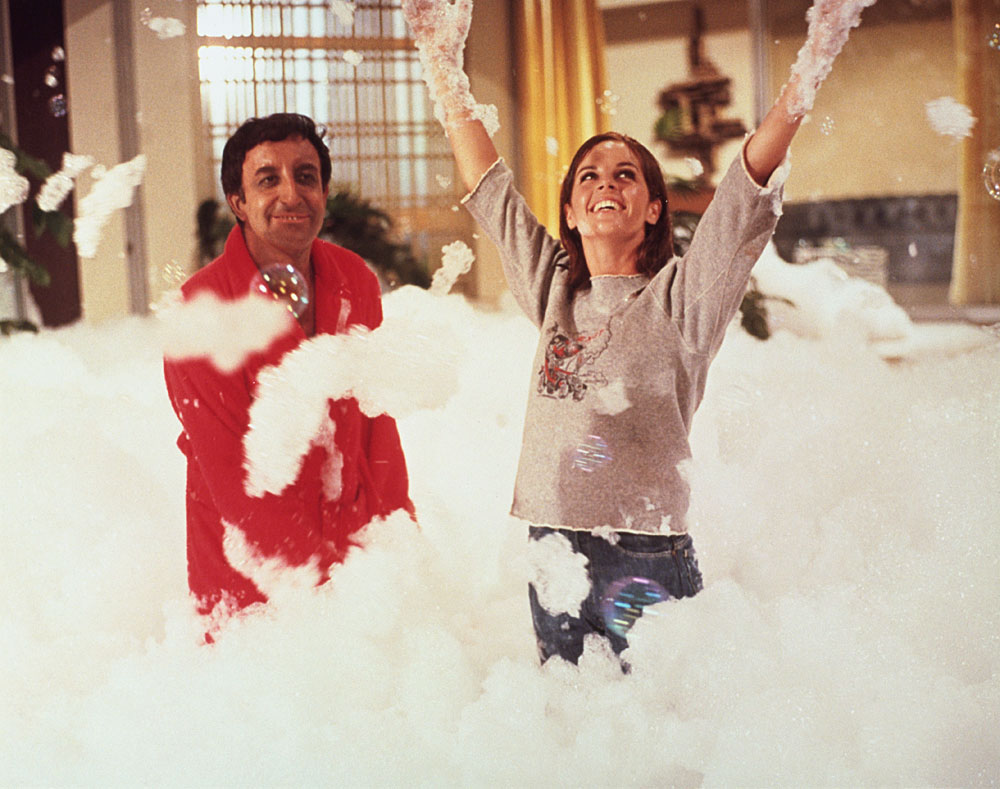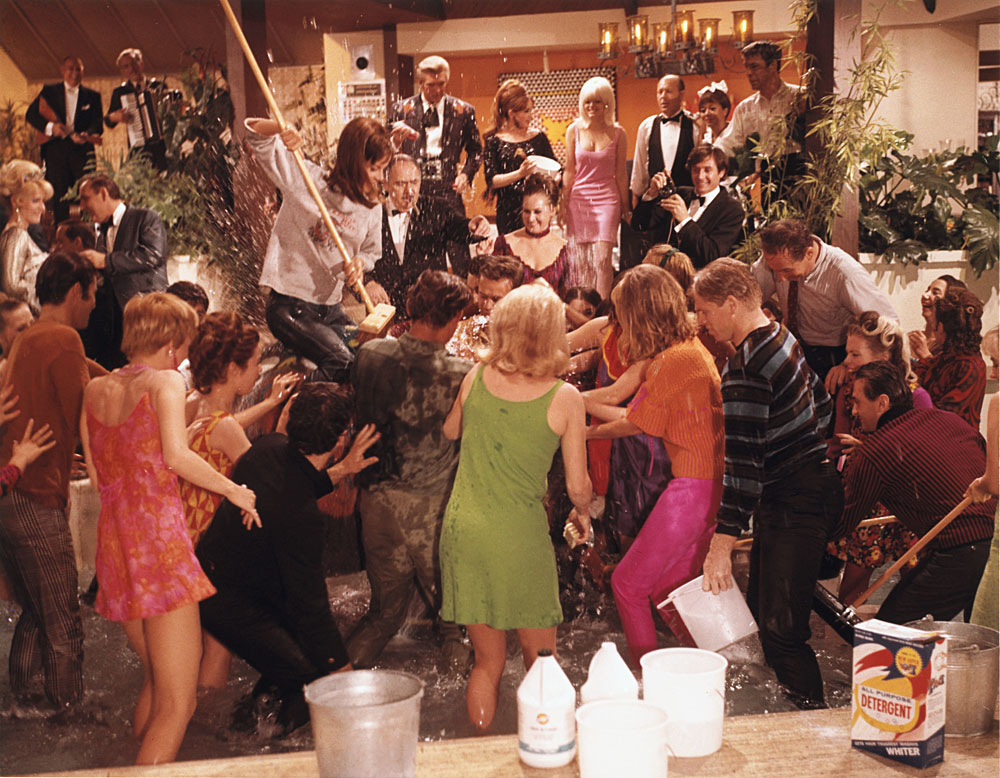A bungling Indian actor (Peter Sellers) accidentally blows up the set of a Hollywood adventure epic. But instead of being fired, he is mistakenly invited to the big-shot producer’s exclusive party, where everything goes horribly and hilariously wrong.
“Or, to put it another way: the film is the story of what happens when an extra happens to become the lead. The inevitable consequence is a revolt: the turning upside down of the system – Hollywood, but also the American Neo-Colonialism that Hollywood embodies. A magnificent angel of destruction putting on an Indian accent, Peter Sellers’ character simultaneously personifies the demand for freedom that was the keynote of the period, and expresses awareness of how that demand would not be fulfilled. Hrundi V. Bakshi ends up by destroying everything: the feature film he was supposed to have a bit part in, the home where he was invited by mistake, the hypocrisy – and sometimes the mental health – of the guests, the relationship between masters and servants, even the hierarchy among the waiters... Yet he himself seems blissfully unaware, tearing through it all like a monsoon. Mind you, the title itself already hints at Blake Edwards’ position. It’s only a party. For all the euphoria and the damage caused, we have the idea that, once the hangover has lifted, things will slowly get back to normal. In my view, it is essentially this attitude which has saved the film from becoming dated. Unlike Zabriskie Point, another film/reflection dedicated to the 1968 revolt, Blake Edwards’ work seems to be looking ahead and beyond. The explosions of color and sound, even the revolts themselves, are just a prop, a way of masking the underlying solitude in every person: past or present, Indian or American. Because when you get down to it – as is revealed rather than concealed by the make-up – the two are none other than the same person.”
– Carlo Chatrian, MUBI

